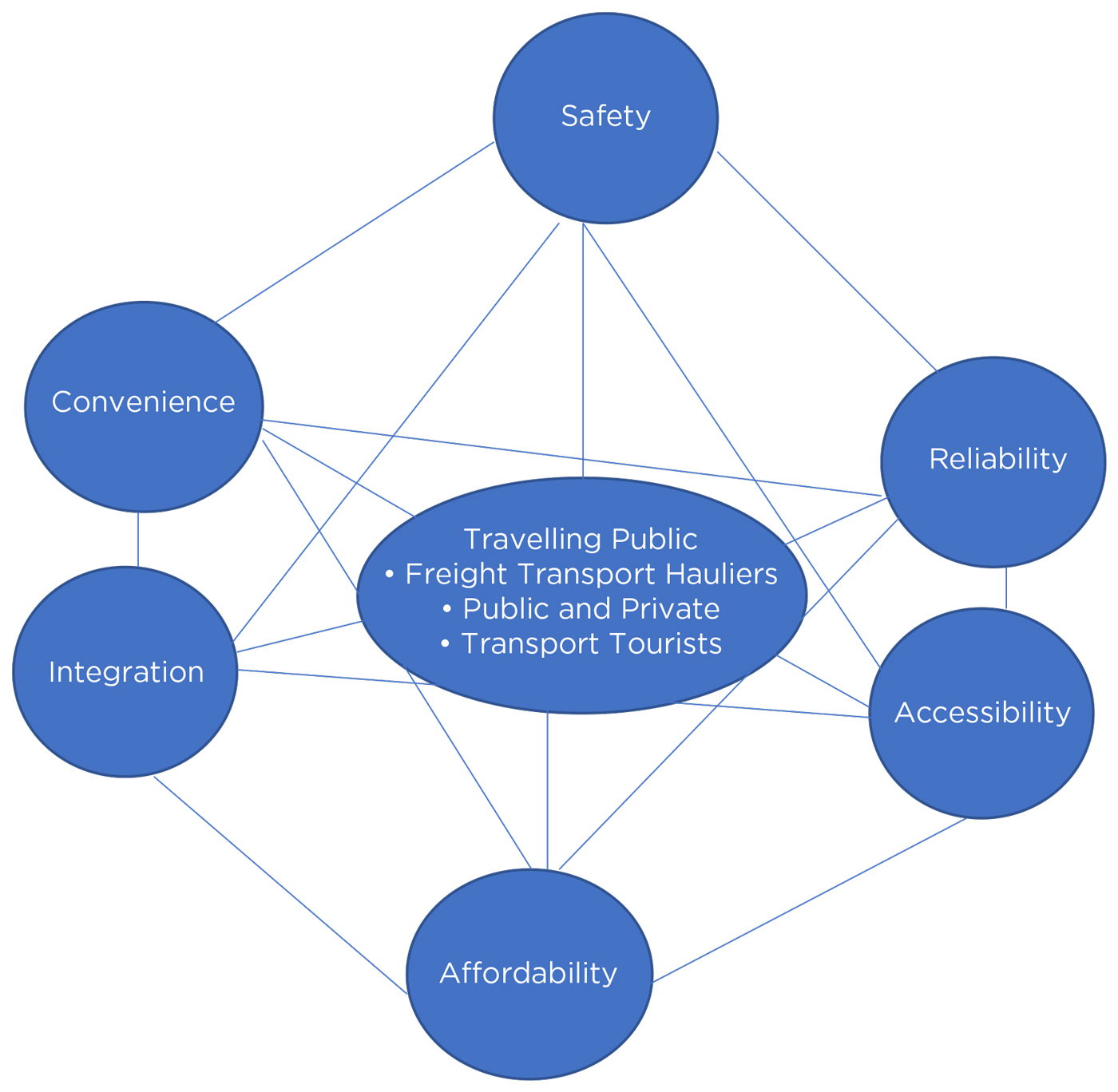Unpacking public-private partnerships
Unpacking public-private partnerships
How does a Public-Private Partnership work when it comes to transport infrastructure? PROF KJ MALULEKE explains.
Transport infrastructure comprises all physical elements upon which transport operations take place. The article in this issue focuses on the users of a road transport infrastructure, bearing in mind the previous two issues, which dealt with the roles and responsibilities of both public and private parties in a concession agreement.
The so-called “travelling public” comprises the following segments:
- Freight transport hauliers
- Public and private transport users
- Tourists
It is clear that government cannot be a policy maker and operator at the same time, as outlined in the National Land Transport Policy (1996).
APPLYING THE MARKETING CONCEPT / BATHO PELE PRINCIPLES
The travelling public deserves to be provided with an integrated service offering based on – amongst other requirements – safety, reliability, accessibility, affordability, integration, and convenience. In transport economics these are referred to as “user requirements” and are contained in the Vision of the National Transport Policy of 1996. Furthermore, the private party is required to unleash the marketing concept by ensuring that the needs of the travelling public are determined with a view to ensuring that the transport system fulfils these requirements.
The Batho Pele Principles further suggest that “citizens should be consulted about the level and quality of the public services they receive and, wherever possible, should be given a choice about the services that are being offered”.
Integrated transport infrastructure user requirements

Above: The integrated service offering to the travelling public.
WHO ARE THESE TRANSPORT INFRASTRUCTURE USERS?
Transport infrastructure users can generally be said to be the “travelling public” referred to previously – consumers of a transport infrastructure. It is worth noting that just like any other consumer, transport infrastructure users are protected by the Consumer Protection Act No. 68 of 2008.
THE RIGHT TO HAVE A SAFE, EFFICIENT, AND EFFECTIVE TRANSPORT SYSTEM
It is the right of every transport infrastructure user to be supplied with an efficient and effective transport system. This means that the user must be provided with mobility between stipulated geographical points with optimised operation output from a minimum utilisation of input resources. Applied to freight transport hauliers, this transport efficiency would mean moving through non-congested roads, resulting in less time in traffic, lower probability of accidents, and thus an improved level of road transport system safety standards.
The concept of safety is fundamental to the survival of every member of the travelling public. Public and private transport alike, as well as tourists, should be treated with the utmost courtesy and consideration; they are the main source of revenue for government to remain sustainable.
THE RIGHT TO CHOOSE A RELIABLE TRANSPORT SYSTEM
When a road transport infrastructure user decides to utilise a road, they are buying a service. A member of the travelling public should be given the option of whether to utilise a toll road or non-toll road. When opting to travel on a toll road, a transport infrastructure user should be willing to pay for the value of the enhanced, differentiated service offering that brings about convenience.
THE RIGHT TO BE INFORMED OF INCONVENIENCES ON THE ROUTE
Consumers need information and knowledge. Learning to be a wise consumer is essential in enabling an individual to discharge their duties as a citizen. Transport infrastructure users need information to be able to adhere to standard operating procedures and regulations. An informed transport infrastructure user will be able to exercise the right choice and control.
Road infrastructure users may also be informed by an Intelligent Transportation System (ITS) aimed at disseminating critical information along the road network.
THE RIGHT TO INFORMATION ON PUBLIC-PRIVATE PARTNERSHIP PROCESSES
Section 77 of the Consumer Protection Act No. 68 of 2008, provides that “the Commission may co-operate with, facilitate or otherwise support a consumer protection group to render a consumer advice and education activities and consumer-related publications”. This simply means that it is mandatory to ensure that transport infrastructure users are informed about the entire Public-Private Partnership process.
THE RIGHT TO BE HEARD
The right to be heard means that citizens should be afforded the opportunity to complain if they are not satisfied. I have previously argued that in a toll road, “customers who wish to complain, compliment, or comment should be given a form to fill at each toll booth”. In addition, there should be a toll-free telephone number for those who wish to vocalise their dissatisfaction.
If dissatisfied transport infrastructure users are denied the opportunity to be heard, their next step is to approach an accredited consumer protection group. In terms of Section 78 (1) of the Consumer Protection Act No. 68 of 2008, an accredited consumer protection group may commence or undertake any action to protect the interests of a consumer individually, or of consumers collectively, in any matter or before any forum contemplated in this Act.
THE RIGHT TO AN AFFORDABLE TRANSPORT SYSTEM
The National Land Transport Policy (1996) places more emphasis on the provision of an affordable, efficient, and reliable system that would ease the mobility of people and goods. It is further asserted that transport users are not supposed to spend more than 10% of their disposable income on transport. This illustrates that transport users have room to negotiate for affordable rates, taking into consideration the prevailing circumstances with respect to Gross Domestic Product per capita.
WHY IS THE TRAVELLING PUBLIC REQUIRED TO PAY TOLL FEES?
The reason for the travelling public paying to use toll roads relates to value for money: the price is set according to the quality of service received from the infrastructure supplier. The price paid by the road transport infrastructure user serves as an acknowledgement that an augmented service offering was well delivered.
Worth noting is that road transport infrastructure managed by a Public-Private Partnership will have amenities such as emergency numbers to dial for breakdown services. The two strategic partners (the public and private parties) are obliged by a Concession Agreement to commit themselves to provide a road transport infrastructure with a superior level of service for users who are willing to pay for such a service.
THE WAY FORWARD
Contemporary society is entirely dependent on a reliable, efficient, and effective transport system. For this to be realised, there has to be a genuine partnership between public and private sector entities that have the propensity to converge the efforts of the Batho Pele and Marketing Concept principles. The collective objective should be to keep the travelling public satisfied, minimising protests along the road transport corridor. It should be highlighted that when both public and private parties succeed in integrating their strategic efforts, it potentially means that the needs of customers will be satisfied and that a great opportunity exists to deliver the right service.
The bottom line is, this strategic partnership should strive to consistently deliver a sustainable solution to the travelling public’s problems. In conclusion, in a road transport infrastructure Public-Private Partnership setting, the public sector’s tasks should be to continuously commission research that aims to determine the needs, wants, and requirements of the travelling public. This research should then prescribe policies and legislative frameworks on how the service offerings can be efficiently and effectively delivered.
Published by
John Maluleke
focusmagsa




